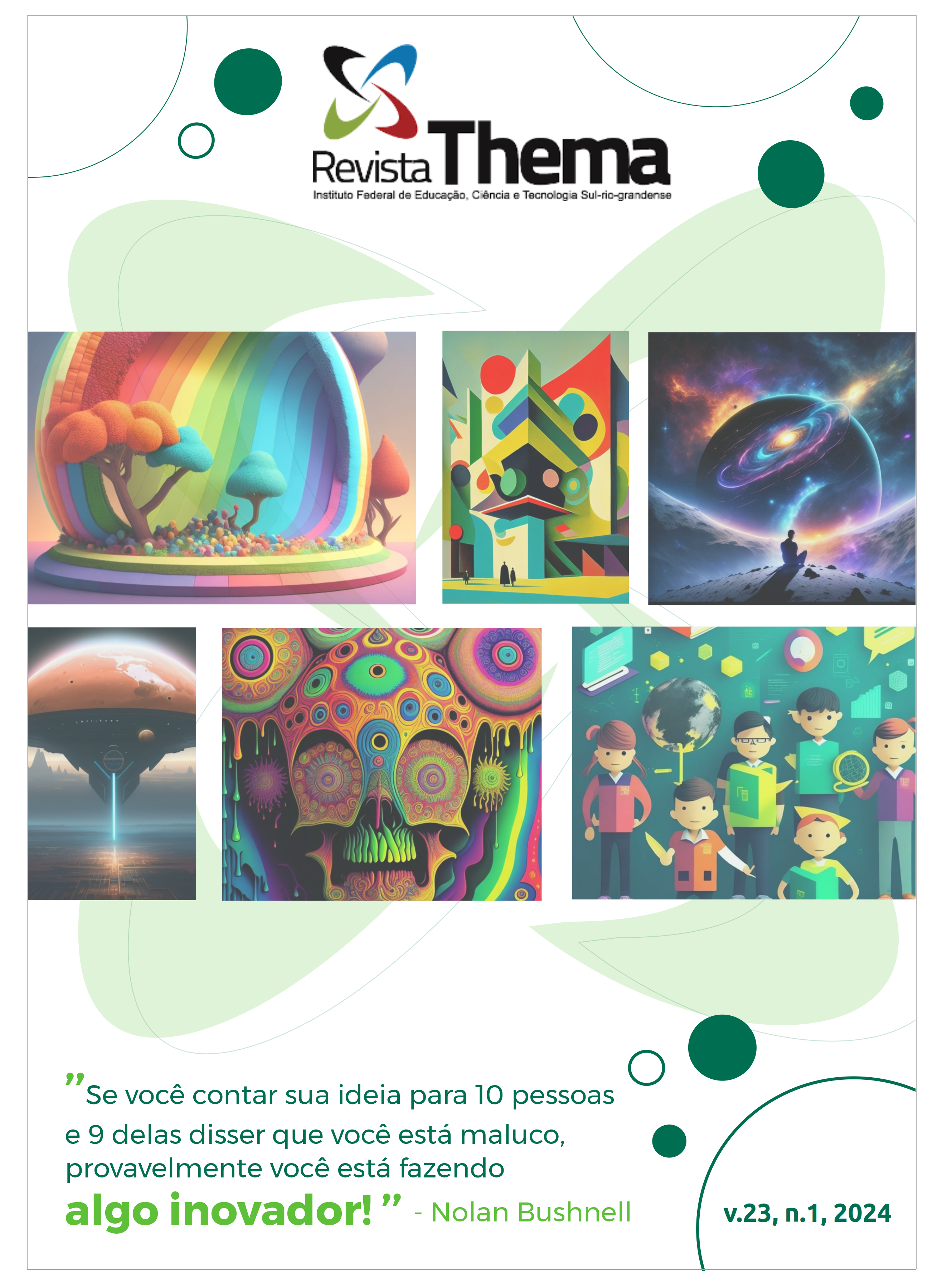Disciplinary interfaces and the student's question
an alternative to reconstructive questioning in science teaching
DOI:
https://doi.org/10.15536/thema.V23.2024.280-299.2243Keywords:
disciplinary interfaces, student’s question, educational strategies, interdisciplinarityAbstract
This article addresses the student´ s question as the principle that generates educational strategies to establish disciplinary interfaces. The aim of this study was to show the possible contributions from authors such as Pedro Demo, Ivani Fazenda, Paulo Freire, Jean Piaget among others, to the development of educational proposals that may bring the disciplines closer together. From that, lateralizations of the assumptions of the student's question and of the guiding principles of the disciplinary interfaces were made. The answers to the two questions about the construction of projects with disciplinary interfaces were analyzed using Discursive Textual Analysis, according to Moraes and Galiazzi (2011). The aim was to investigate both the teachers' practical strategies for creating and applying themes with disciplinary interfaces, and the role of the student's question in this elaborative process. A substantial pedagogical relationship was identified when establishing disciplinary interfaces through the student's question.
Downloads
Downloads
Published
How to Cite
Issue
Section
License
O autor responsável pela submissão representa todos os autores do trabalho e, ao enviar o artigo para a revista, está garantindo que tem a permissão de todos para fazê-lo. Da mesma forma, assegura que o artigo não viola direitos autorais e que não há plágio no trabalho. A revista não se responsabiliza pelas opiniões emitidas.
A Revista Thema é de acesso aberto (Open Access), sem que haja a necessidade de pagamentos de taxas, seja para submissão ou processamento dos artigos. A revista adota a definição da Budapest Open Access Initiative (BOAI), ou seja, os usuários possuem o direito de ler, baixar, copiar, distribuir, imprimir, buscar e fazer links diretos para os textos completos dos artigos nela publicados.
Todos os artigos são publicados com a licença Creative Commons Atribuição-NãoComercial 4.0 Internacional. Os autores mantém os direitos autorais sobre suas produções, devendo ser contatados diretamente se houver interesse em uso comercial dos trabalhos.





